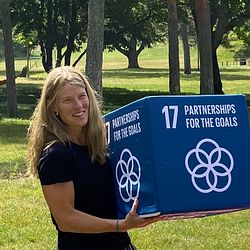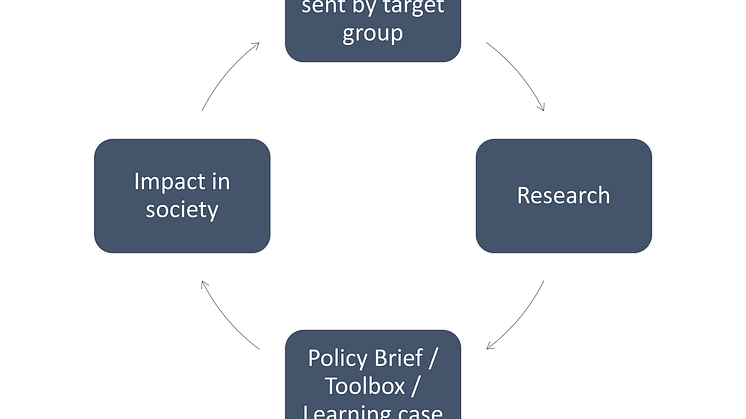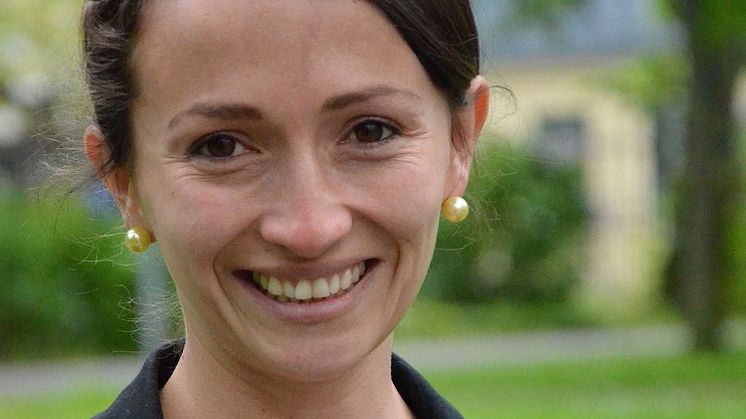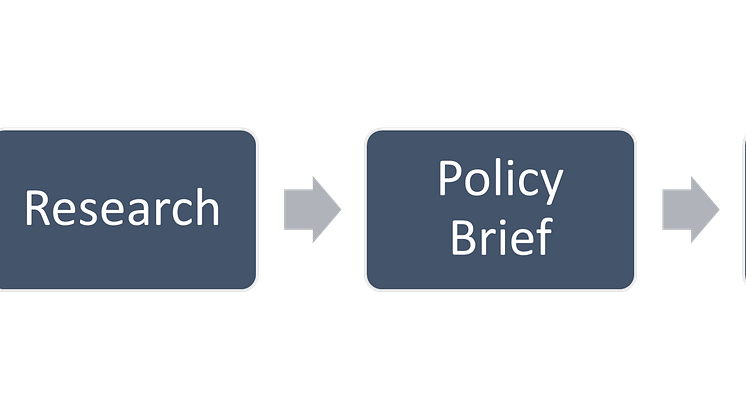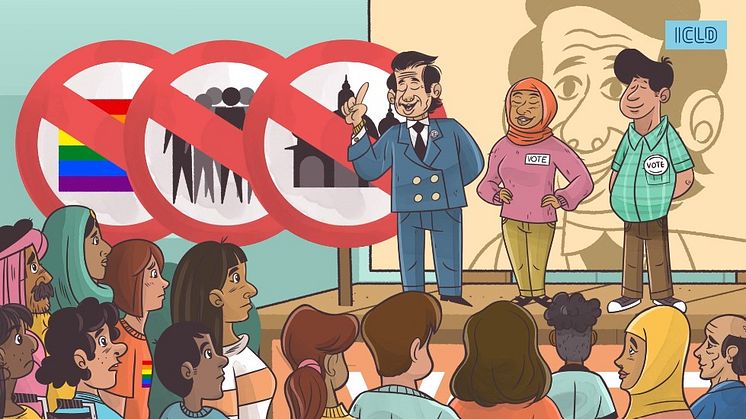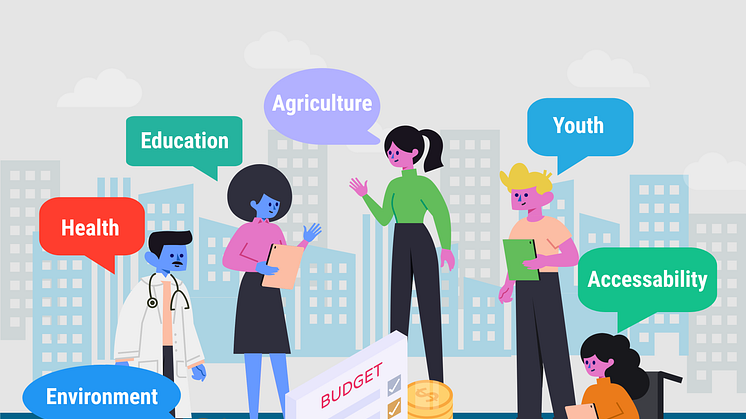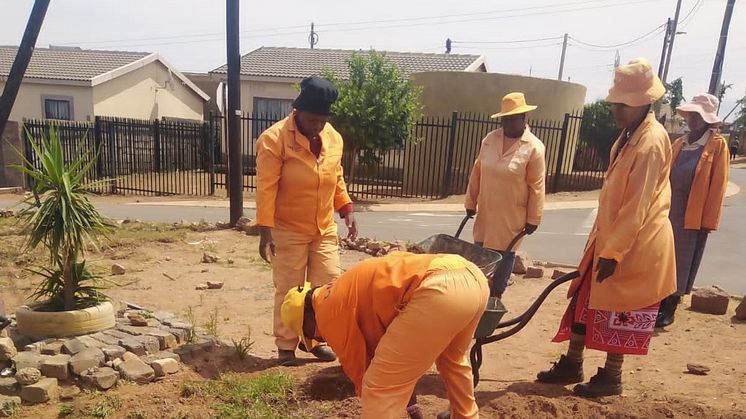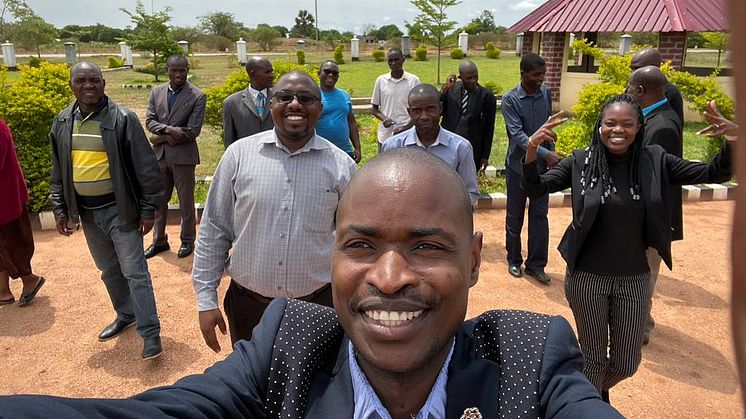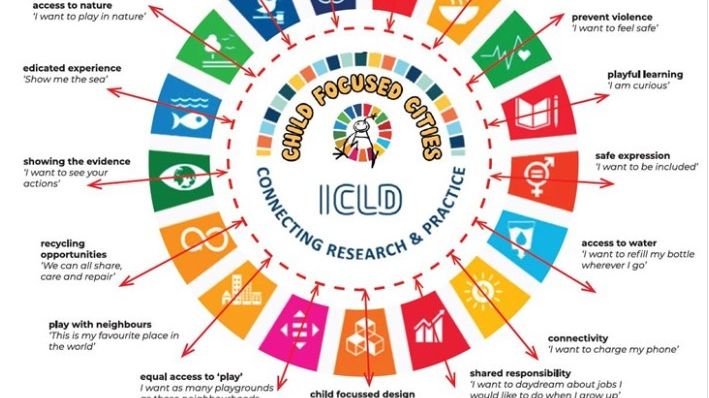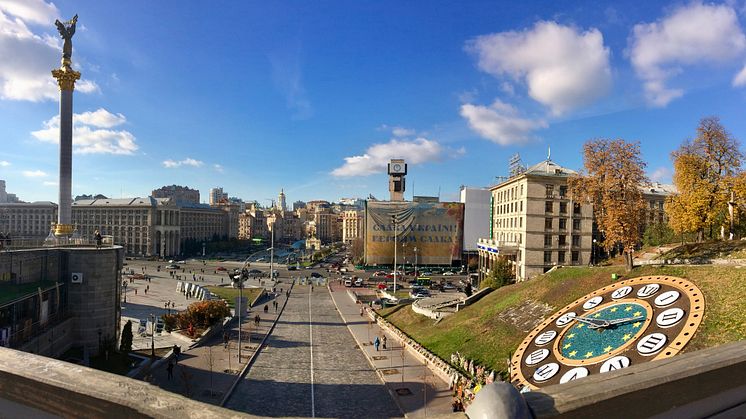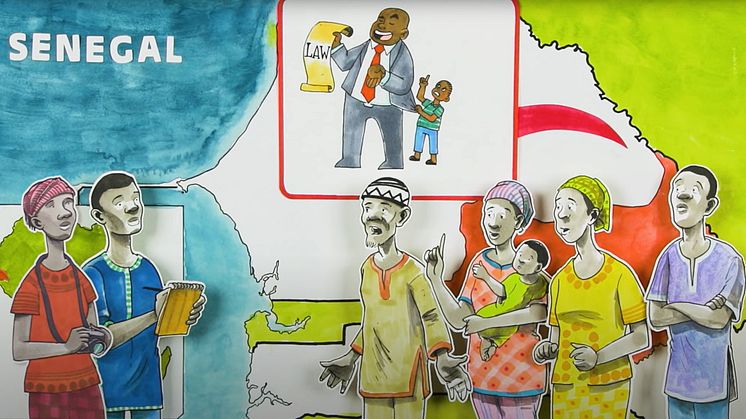
Blogginlägg -
New blog series: Connecting research and practice
There are many ways toward democratic change and decentralisation - we want the best ones. We want local governments to work based on state-of-the-art knowledge and evidence, and local democracy researchers to build their conclusions on realities on the ground. But how? For a proper introduction to ICLD's model, our Research Director Ana Maria Vargas Falla is first up.

Connecting research and policy: starting at the policy end!
By Ana Maria Vargas, PhD, Research Director ICLD
For many years researchers have worked in communicating their findings to society and policy makers in a variety of ways. The process usually starts at the end of the research cycle when findings are clearly established, and conclusions are ready. Researchers are encouraged to turn their long, abstract and dense academic papers into short policy briefs that can inform policy makers. During my work at ICLD, we used that model to communicate with policy makers. As the graph below points, we started with excellent research reports that were turned into condensed policy briefs.

While we were hoping to make an impact in the sense that policy makers will use the research to bring new policies or implement practices based on research, we experienced many problems. Policy makers were in many cases not interested, the issues lifted in the policy briefs were not urgent in their agenda, or they lack the resources and power to implement those changes. So, was this model wrong? Could we start at the other end?
We reformed our approach to research and started with the policy makers in local governments where we worked. We asked them if there was any question they wanted to discuss with researchers?
Connecting research and policy: a needs-based model

I will give you an example of this model. We asked local governments that are participating in our network for equitable health to participate in what we called “Local Democracy Labs”. The labs are spaces of one hour for policy makers to discuss questions they choose with leading researchers. One of the questions we received was from a county in Kenya working on a cancer health project. They wanted to know: How can local governments identify an indicator that captures equity in cancer healthcare?” A difficult question, right? They wanted to improve the health of their citizens to get access to cancer health care. We contacted different scholars with the right expertise we found through Google Scholar and two responded positively to our invitation. Joan Costa-i-Font, Associate Professor in Health Economics, London School of Economics and Brian Cole, Assistant Professor, UCLA School of Public Health.
The labs work in a very simple way, they do not require much preparation. Researchers and policy makers meet for one hour only to discuss one question. The two researchers pointed into multiple angles and perspectives. For example, on the prevention side the importance of environmental factors such as obesity while in the detection side the importance of awareness about early screening. They discussed the role of religious beliefs, the importance of education and of decentralized care so that people living in remote areas are reached. They helped the policy makers to: 1) think more holistically and outside the boundaries of the health center, and 2) integrate aspects of equity.
So, what have we learned?
It is important to start with the needs of the policy makers. Sarah Anne Rennick, Deputy Director at the Arab Reform Initiative says “urgency” is key. To connect research with policy, the topic of the research must be highly prioritized in the political agenda.
Can we still connect research with policy, when the issue competes for attention in the political agenda?
Yes. According to Professor Markku Rummukainen from Lund University, the Intergovernmental Panel on Climate Change (IPCC), assessing the available science building from thousands of academic articles, has enabled climate action. The way the 1.5 degrees goal speeded from the global Paris climate agreement into national and local policies after an IPCC report in 2018 is a case in point.
So, what is the way forward?
ICLD uses different adapted models to connect research and practice including labs, animated videos, policy briefs, toolboxes and learning cases. In the upcoming weeks we will share the experiences of different researchers and local governments that have been involved in these activities.
